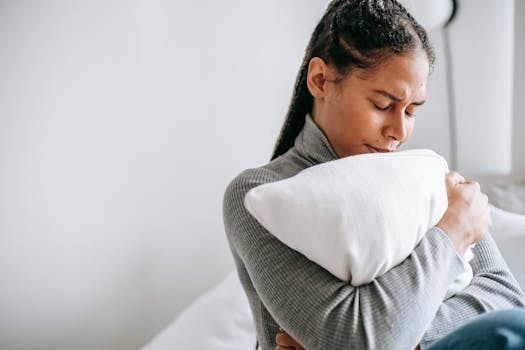
Guidelines for Managing Stress and Anxiety Effectively
Takeaways: This article provides practical strategies for managing stress and anxiety, including mindfulness techniques, physical activity, healthy lifestyle choices, and building a support network. By implementing these guidelines, you can foster a more balanced and peaceful life.
Stress and anxiety are common experiences in our fast-paced world. While some stress can be beneficial, chronic stress and anxiety can lead to significant mental and physical health issues. In this article, we will explore effective guidelines for managing stress and anxiety to improve your overall well-being.
Understanding Stress and Anxiety

Recognizing the signs of stress and anxiety is the first step toward managing them. Symptoms can include irritability, fatigue, difficulty concentrating, and physical symptoms like headaches or stomach issues. When these feelings become chronic, it’s essential to take action.
Practical Strategies for Managing Stress
1. Practice Mindfulness and Meditation
Mindfulness is the practice of staying present in the moment, which can help reduce stress and anxiety. Techniques such as meditation, deep breathing exercises, and progressive muscle relaxation can promote relaxation and mental clarity. Start with just a few minutes each day and gradually increase your practice.
2. Engage in Regular Physical Activity
Exercise is a powerful stress reliever. Physical activity increases the production of endorphins, the body’s natural mood lifters. Find an activity you enjoy, whether it’s walking, running, dancing, or yoga, and make it a part of your daily routine.
3. Maintain a Healthy Lifestyle
Proper nutrition, adequate sleep, and hydration play crucial roles in managing stress and anxiety. A balanced diet rich in fruits, vegetables, whole grains, and lean proteins can support your mental health. Aim for 7-9 hours of quality sleep each night to allow your body and mind to recover.
4. Set Realistic Goals
Overcommitting can lead to increased stress. Set achievable goals for yourself and learn to say no when necessary. Break larger tasks into smaller, manageable steps to reduce feelings of being overwhelmed.
5. Build a Support Network
Surround yourself with supportive friends and family. Sharing your thoughts and feelings with others can provide relief and perspective. Consider joining a support group or seeking professional help if needed.
Techniques for Coping with Stress and Anxiety
1. Journaling
Writing down your thoughts and feelings can be a great way to process emotions. Journaling allows you to reflect on your stressors and identify patterns in your anxiety, enabling you to address them more effectively.
2. Practice Gratitude
Focusing on positive aspects of your life can shift your mindset. Consider keeping a gratitude journal where you list things you are thankful for each day. This practice can improve your mood and overall outlook on life.
3. Limit Screen Time
Excessive screen time, especially on social media, can increase feelings of anxiety and inadequacy. Set boundaries on your technology use and take regular breaks from screens to reconnect with yourself and your surroundings.
4. Engage in Creative Activities
Creative outlets such as painting, drawing, or playing music can serve as effective stress relievers. These activities allow you to express emotions and can provide a sense of accomplishment and joy.
5. Seek Professional Help
If stress and anxiety become unmanageable, consider seeking help from a mental health professional. Therapists can provide valuable tools and strategies tailored to your needs, helping you navigate challenges more effectively.
Conclusion
Managing stress and anxiety is essential for maintaining mental and physical health. By incorporating mindfulness, physical activity, healthy lifestyle choices, and a strong support network into your daily routine, you can effectively combat stress and anxiety. Remember that it’s okay to seek help when needed and that you are not alone in your journey toward better mental wellness. Start today by implementing these guidelines and take the first step towards a more balanced and peaceful life.




